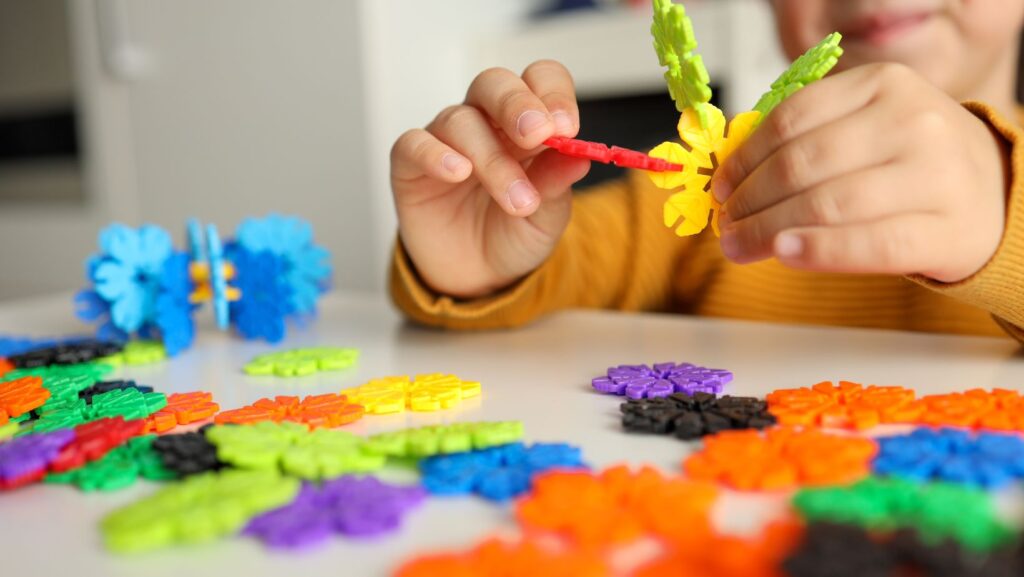Fine motor skills play a crucial role in a child’s development, particularly during the preschool years. These skills involve the coordination of small muscles in the hands and fingers, essential for tasks like writing, buttoning clothes, and using utensils. Engaging fine motor activities for preschoolers not only enhance dexterity but also foster cognitive growth and boost self-confidence.
Preschoolers thrive on hands-on learning experiences that challenge and excite them. From threading pasta necklaces to squeezing playdough, there’s a wide array of fun activities that can help develop these vital skills. These exercises for fine motor skills not only improve hand strength and coordination but also prepare children for more complex tasks they’ll encounter in school and daily life.
By incorporating these activities into a preschooler’s routine, parents and educators can create an enjoyable learning environment that supports overall development. The key is to offer a variety of engaging fine motor activities that cater to different interests and skill levels, ensuring that each child can progress at their own pace. This information is for educational use and should not replace professional medical consultation. For personal medical advice, please contact your healthcare provider.
Integrating the farm animal toys into preschoolers’ playtime offers myriad advantages for the children’s fine motor development. Some of the fine motor activities involved include grasping, positioning, and moving the toys, which promote hand eye coordination and dexterity. Pretend play with farm animals encourages children to form scenarios around the animals enhancing their creativity and cognitive development. Moreover, sorting animals based on their type or size nurtures critical thinking and problem-solving skills. Parents and teachers can further enhance the positive play-farming experience by letting the children engage in sorting activities that highlight the important aspects of distinguishing details. Thus, by having farm animal toys, children aged preschool can fully enjoy the developmental support to fine motor skills, critical thinking, and creative problem solving.
Key Takeaways
- Fine motor activities enhance dexterity and cognitive development in preschoolers
- A variety of engaging exercises helps children develop essential hand and finger skills
- Regular practice of fine motor activities prepares children for future academic challenges
Essential Fine Motor Skills and Development in Preschoolers
Fine motor skills are crucial for preschoolers’ overall development. These skills involve the coordination of small muscles in the hands and fingers, enabling children to perform precise movements essential for daily tasks and future academic success.
Identifying Key Fine Motor Skills in Young Children
Pincer grasp is a fundamental skill that allows children to pick up small objects using their thumb and index finger. Hand strength and dexterity are vital for activities like writing, cutting, and manipulating objects.
Small hand muscles develop through regular fine motor practice. Scissor skills help improve hand-eye coordination and bilateral coordination. Tracing enhances precision and fine motor control.
Color recognition, while not strictly a motor skill, often pairs with fine motor activities to enhance learning. Manual dexterity involves the ability to manipulate objects skillfully with the hands.
The Role of Fine Motor Activities in Skill Enhancement
Fine motor activities provide targeted practice for skill development. Engaging in tasks like threading beads or using tongs strengthens hand muscles and improves coordination.

Building with blocks enhances spatial awareness and finger dexterity. Coloring and drawing activities promote proper pencil grip and control. Cutting with safety scissors develops hand strength and precision.
Fine motor practice through everyday activities, such as buttoning clothes or using utensils, reinforces skill development. Structured fine motor activities in preschool settings offer opportunities for guided skill enhancement.
Regular engagement in fine motor tasks supports the development of hand-eye coordination, essential for future academic and life skills.
Fun and Engaging Activities to Foster Fine Motor Development
Fine motor activities help preschoolers develop crucial skills through play. These activities enhance dexterity, hand-eye coordination, and finger strength while promoting creativity and independence.
Crafts and Creativity with Play Dough and Beads
Play dough offers endless possibilities for fine motor development. Children can roll, pinch, and mold the dough to create shapes and objects. Using dough scissors helps improve cutting skills.
Stringing beads onto pipe cleaners or string promotes hand-eye coordination and finger dexterity. Start with larger beads for younger children and progress to smaller ones as skills improve.
Threading activities can be varied by using pasta, buttons, or cardboard shapes with holes. This helps strengthen finger muscles and enhances concentration.
Enhancing Dexterity Through Sensory Play
Sensory bins filled with materials like rice, beans, or sand encourage exploration and fine motor development. Hide small toys or objects for children to find, promoting finger dexterity.
Finger painting allows free expression while strengthening hand muscles. Use different textures like shaving cream or pudding for added sensory input.
Q-tip painting and dot markers offer precise ways to create art. These tools help develop proper grip and control, essential for future writing skills.
Building and Manipulating for Improved Hand Functions
Building with blocks of various sizes and shapes enhances spatial awareness and fine motor skills. Encourage stacking, balancing, and creating structures.
Weaving activities using large looms or cardboard with yarn improve hand-eye coordination and finger dexterity. Start with simple over-under patterns and progress to more complex designs.

Clothespin activities, like attaching them to the edge of a container, strengthen hand muscles. This skill transfers to tasks like buttoning and zipping.
Learning with Color Matching and Sorting Activities
Color sorting games using small objects like buttons or pom-poms improve pincer grasp and color recognition. Use tweezers or tongs for an added challenge.
Create color matching activities with paint chips and small objects. Children can place items on corresponding colors, enhancing visual discrimination and fine motor skills.
Puzzles with large pieces are excellent for developing problem-solving skills and finger dexterity. Gradually introduce puzzles with smaller pieces as abilities improve.
Conclusion
Fine motor activities play a crucial role in preschoolers’ development. They enhance dexterity, hand-eye coordination, and cognitive skills.
Simple, engaging tasks like threading pasta, building with blocks, and using tongs provide valuable learning opportunities. These activities prepare children for important skills like writing and self-care.
Regular practice of fine motor skills helps preschoolers gain confidence and independence in their daily activities.


